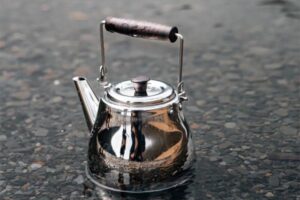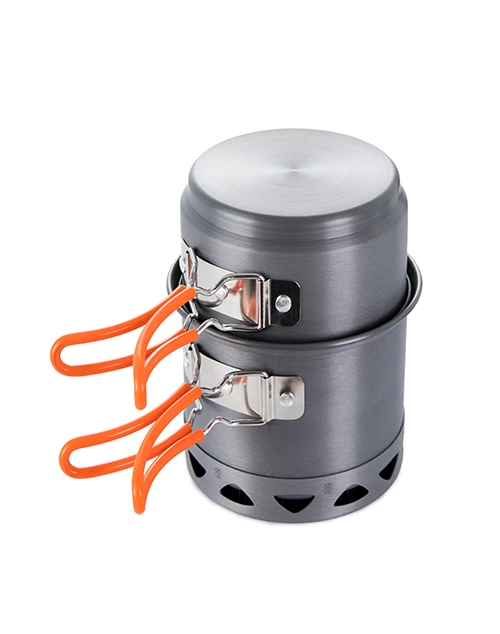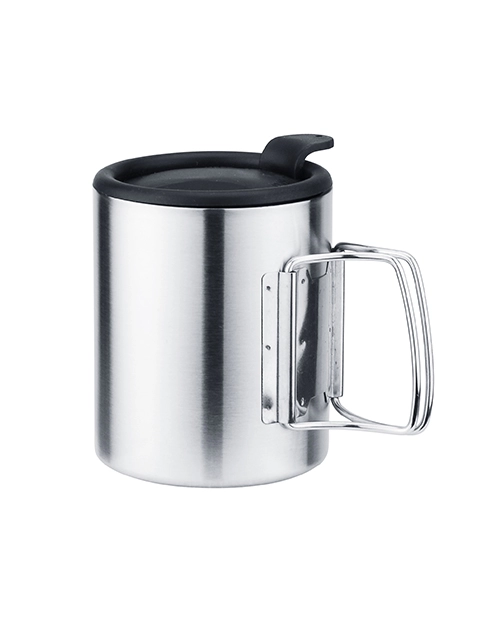
It is best to store your furniture and other accessories inside a garage or shed during the coldest and wettest months of the year. If it is not feasible, you can also purchase furniture covers that will fit practically any kind of outdoor furniture. To avoid corrosion and staining, store furniture indoors throughout the winter.
In this article, we will take a closer look at how to clean different metal furniture and the suitable cleaner choices with must-do’s and don’ts. Using these cleaning instructions will make your furniture look brand new. Stay tuned with us!
Why Choosing the Right Cleaner Matters?
- Maintains Aesthetic Appeal:With the right cleaning, your metal furniture can keep its original gleam and luster, appearing fresh and colorful.
- Preserves Durability:Using the incorrect cleaner can cause scratches or etching, which reduces the material’s resistance to normal wear and tear.
- Protects Oxidation Reaction: Certain cleaners are designed to create a protective barrier that shields the metal from oxidation. This is particularly crucial for preventing rust, especially in areas with varying weather conditions.
How to Clean Different Types of Metal Furniture for Outdoors
Aluminum
For outdoor furniture, aluminum is the most durable metal to use and the best choice as it is easy to clean. It requires very little upkeep and can be left outside year-round. But aluminum undergoes an oxidation process that can lead to rust formation. This is primarily due to high salt exposure, like that of seawater, and occurs because aluminum has a strong affinity for oxygen. If your aluminum furniture is painted or powder coated, it provides a protective layer and will not be concerning anymore.
Cleaning
- Every now and then, use a gentle cloth and some car soap to clean the furniture frame.
- Highly quality automotive paste wax can also be used to preserve the finish very infrequently. The experts do not advise it, though.
- Refrain from using abrasive sponges or dishwashing detergents.
- Another suitable product to restore the luster and shine is lemon oil.
Steel
Steel is a very durable and reasonably priced metal, but it needs a lot of upkeep because it rusts easily. Oxidation leads to rust, which subsequently begins to degrade and flake off. It may begin as a rust stain, which is simple to remove, but if left unattended, the rust can begin to penetrate deeper into the metal and cause problems.
Iron
Wrought iron is a weather-resistant metal that can be used for outdoor furniture. However, wrought iron rusts easily, just like steel does. Thus, it requires constant care and extensive regular maintenance, which can be hectic for you during outdoor camping.
Steel and Iron Cleaning
- Apply dish soap, water, and a scrub brush.
- Use a smaller scrub brush for areas that are more intricate.
- Use water to rinse.
- You can also use baking soda if stains persist.After cleaning the furniture, use baking soda to dust it. After an hour, use a metal brush or steel wool to scrub. Rinse, then let air dry.
Proper Care
The best way to keep your outdoor furniture looking good is to take corrosion-preventative measures.
Paint or powder-coating your aluminum outdoor furniture is the best option. This will prevent oxidation and act as a protective layer. Make sure that the furniture is completely covered, because even a tiny hole can lead to corrosion. Additionally, specific coatings that stop oxidation can also be purchased.
Do’s and Don’ts of How to Clean Metal Outdoor Furniture
To ensure your outdoor furniture stands the test of time, keep in mind these do’s and don’ts for cleaning
Do’s
Go for a gentle cleanser according to Your Furniture Type
Use gentle cleansers that are specifically made for specific metal types. While plastic or metal furniture might need a multi-surface cleaner, wood should be cleaned with a mild wood cleaner.
Do a Patch Test First
Before applying any cleaning solution, perform a small patch test on an unnoticed part of the furniture. This guarantees compatibility and guards against any unforeseen harm.
Soft Brushes or Cloths
Before applying any water and soap mixture, dust off dirt with a soft bristle brush and microfiber cloth. Avoid abrasive brushes that can scratch the furniture surfaces. You will be able to determine what needs to be cleaned again thanks to this.
Eye on Rust Formation
Keep a close eye on any sign of rust, as metal rusts under humid conditions because the moisture in the air reacts with the oxygen and electrons on the upper surface of the metal. Rust makes even the toughest metal weaken and shortens the lifespan of furniture. Appropriate treatments can help keep the aesthetic charm of your furniture.
Wipe Regularly
Make it a habit to regularly wipe down your outdoor furniture to avoid dirt and grime accumulation. Your furniture will last longer and look better with regular upkeep.
Don’ts
No Harsh Chemicals
Stay out of harsh chemicals like bleach or ammonia, as they can damage the finish and color of your outdoor furniture. They can strip away protective coatings and leave your furniture vulnerable. Stick to mild, eco-friendly options for safe cleaning.
Skip Drying
Metal and moisture do not mix, which is why you should always wipe your metal furniture dry after cleaning it. Leaving the furniture moist can lead to corrosion and rust, especially in humid climates.
A Big No To Pressure Washers
While pressure washers are effective for some outdoor cleaning tasks, they can be too harsh for furniture. The high pressure can strip finishes and cause irreparable damage to delicate materials.
Neglect Protective Measures
Invest in furniture covers or store your outdoor pieces in a sheltered area during extreme weather conditions. This shields them from the elements and reduces the frequency of deep cleaning.


![Amazing Tips On How to Protect Outdoor Furniture-[Guide]](https://www.deermaple.com/wp-content/uploads/2023/11/Outdoor-Furniture-1-300x200.jpg)






